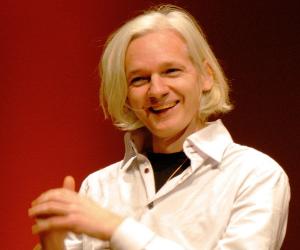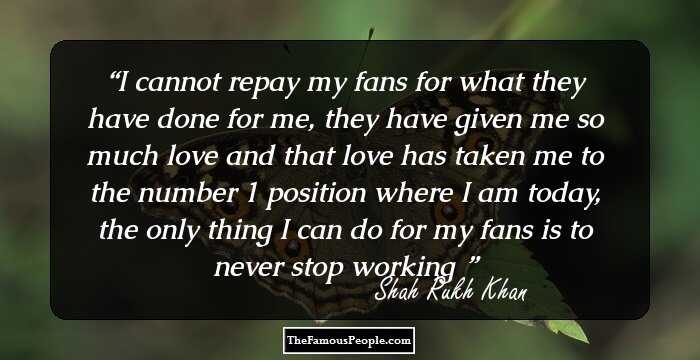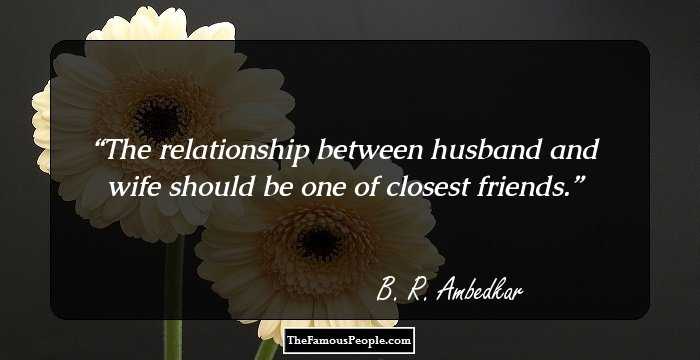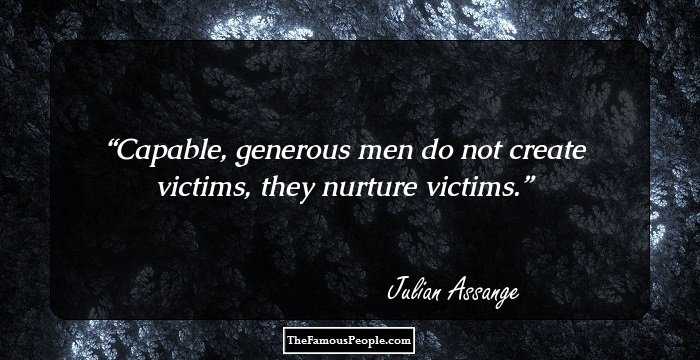
Capable, generous men do not create victims, they nurture victims.
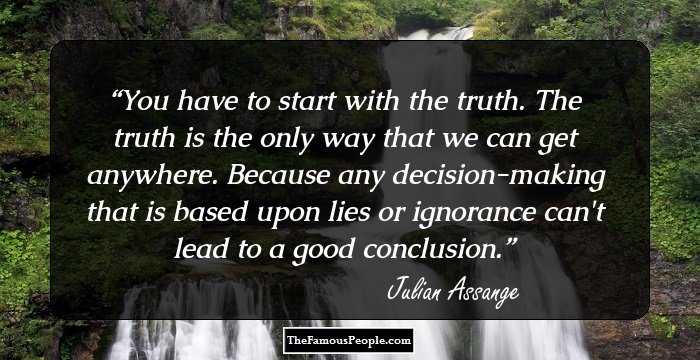
You have to start with the truth. The truth is the only way that we can get anywhere. Because any decision-making that is based upon lies or ignorance can't lead to a good conclusion.
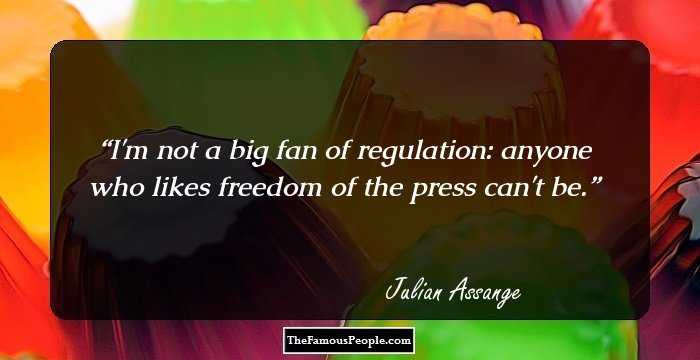
I'm not a big fan of regulation: anyone who likes freedom of the press can't be.
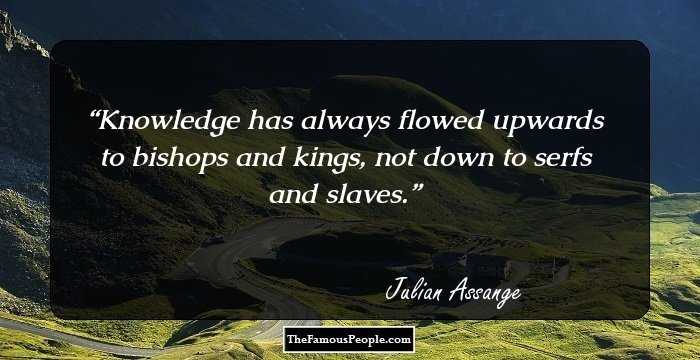
Knowledge has always flowed upwards to bishops and kings, not down to serfs and slaves.
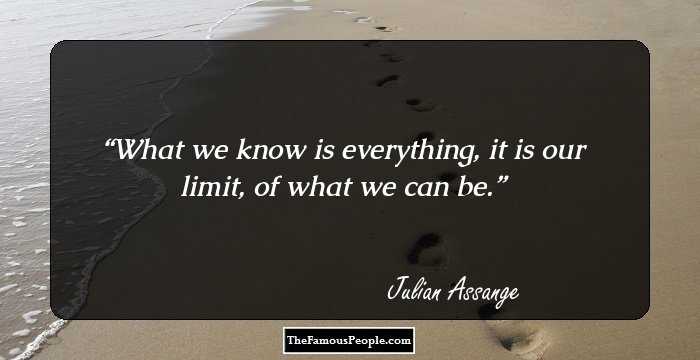
What we know is everything, it is our limit, of what we can be.
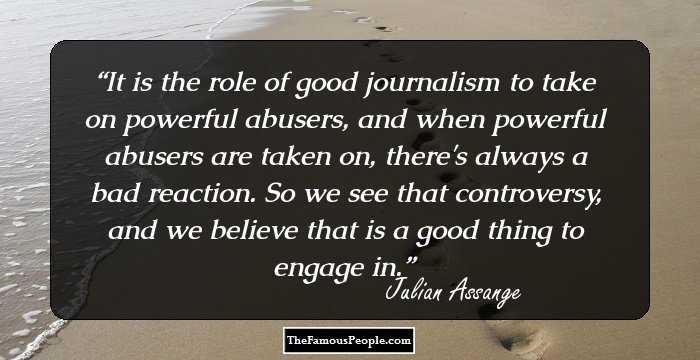
It is the role of good journalism to take on powerful abusers, and when powerful abusers are taken on, there's always a bad reaction. So we see that controversy, and we believe that is a good thing to engage in.
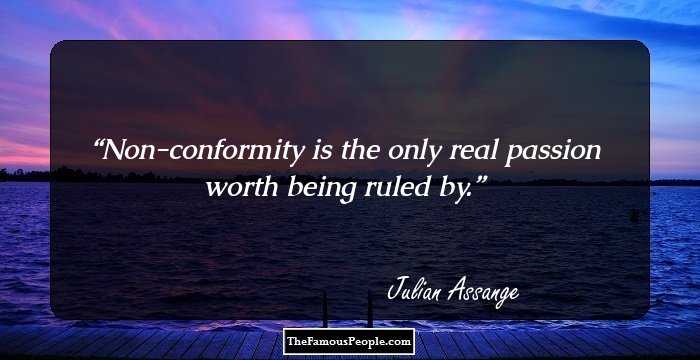
Non-conformity is the only real passion worth being ruled by.
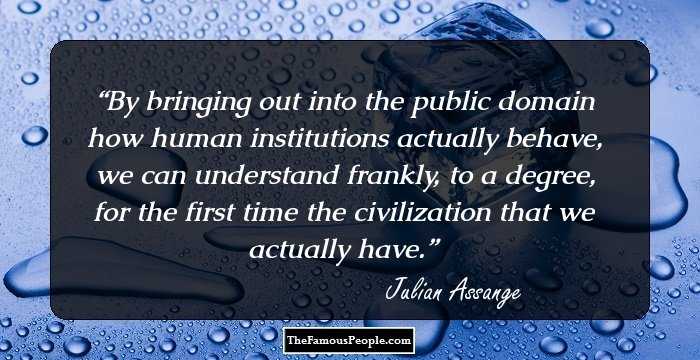
By bringing out into the public domain how human institutions actually behave, we can understand frankly, to a degree, for the first time the civilization that we actually have.
We like to engage in a normal publishing effort, which is to act in a responsible manner and make sure the material is not likely to harm anyone, that it is properly investigated by quality news organizations, and by lawyers and human rights groups and so on.
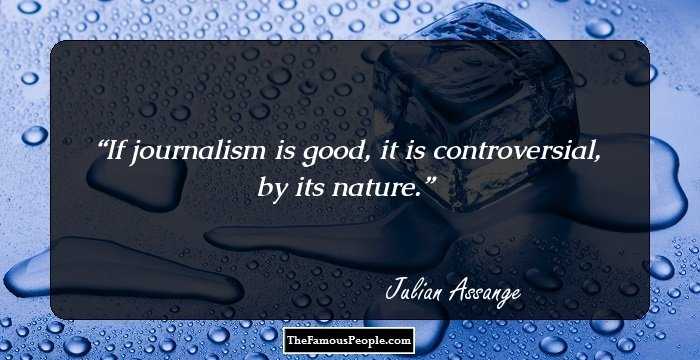
If journalism is good, it is controversial, by its nature.
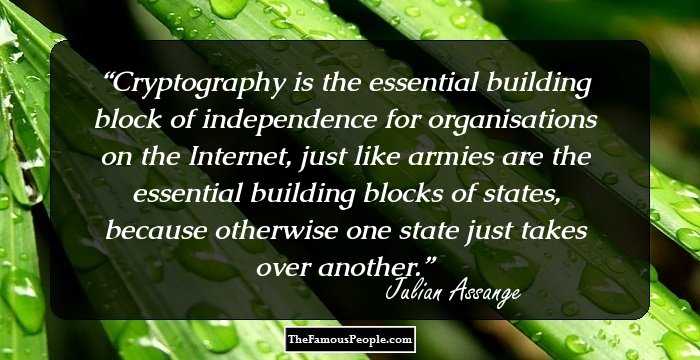
Cryptography is the essential building block of independence for organisations on the Internet, just like armies are the essential building blocks of states, because otherwise one state just takes over another.
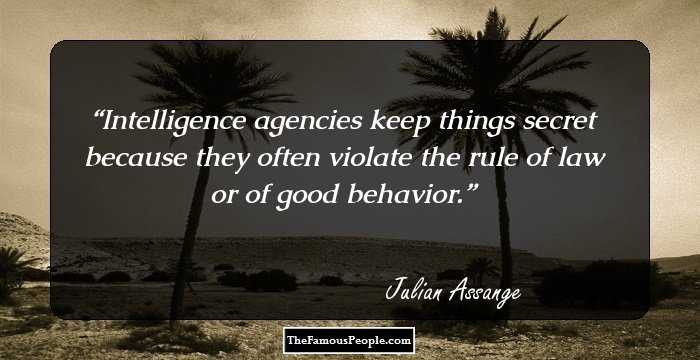
Intelligence agencies keep things secret because they often violate the rule of law or of good behavior.
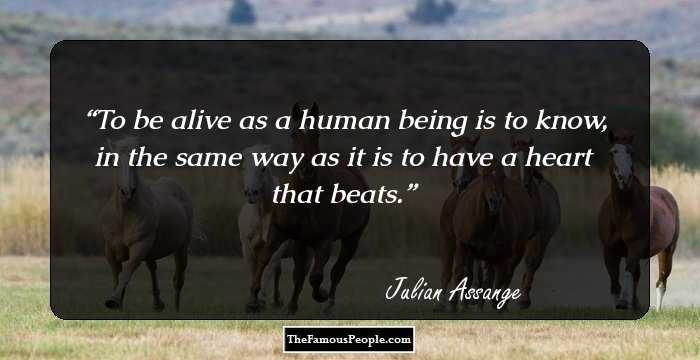
To be alive as a human being is to know, in the same way as it is to have a heart that beats.
As we've gotten more successful, there's a gap between the speed of our publishing pipeline and the speed of our receiving submissions pipeline. Our pipeline of leaks has been increasing exponentially as our profile rises, and our ability to publish is increasing linearly.
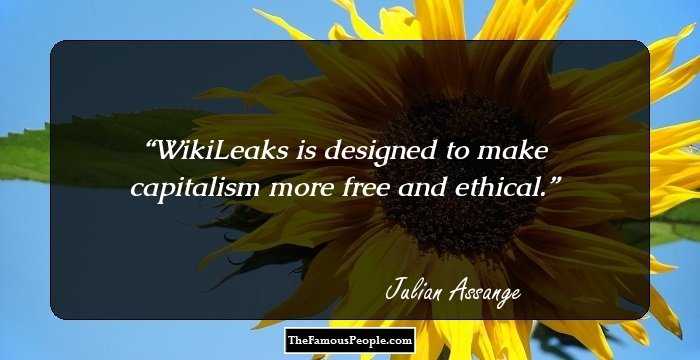
WikiLeaks is designed to make capitalism more free and ethical.
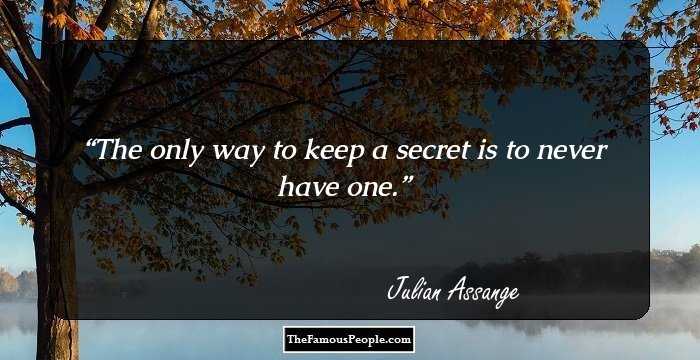
The only way to keep a secret is to never have one.
Well, there's a question as to what sort of information is important in the world, what sort of information can achieve reform. And there's a lot of information. So information that organizations are spending economic effort into concealing, that's a really good signal that when the information gets out, there's a hope of it doing some good.
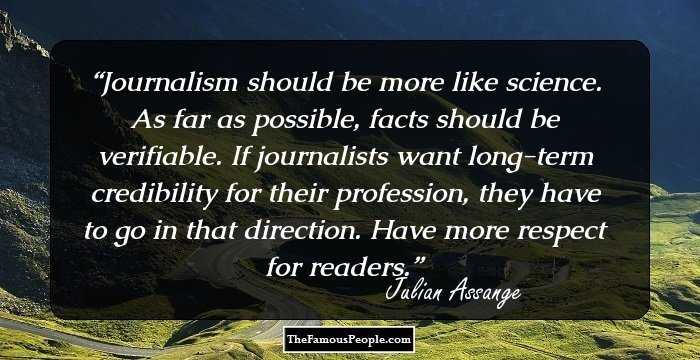
Journalism should be more like science. As far as possible, facts should be verifiable. If journalists want long-term credibility for their profession, they have to go in that direction. Have more respect for readers.

Where they couldn't pick holes in our arguments they would drive horses and carriages through my character.
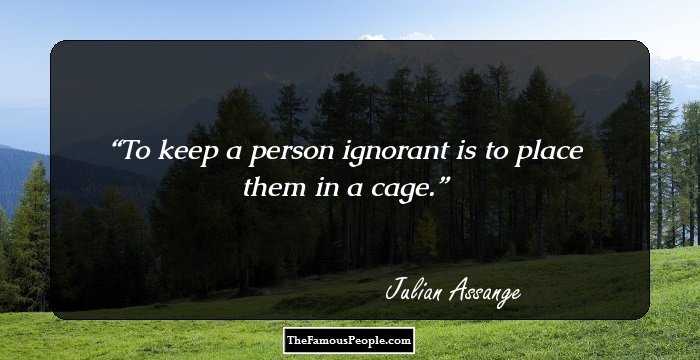
To keep a person ignorant is to place them in a cage.
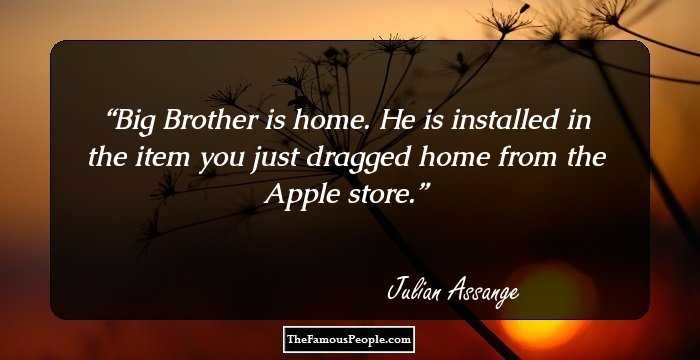
Big Brother is home. He is installed in the item you just dragged home from the Apple store.
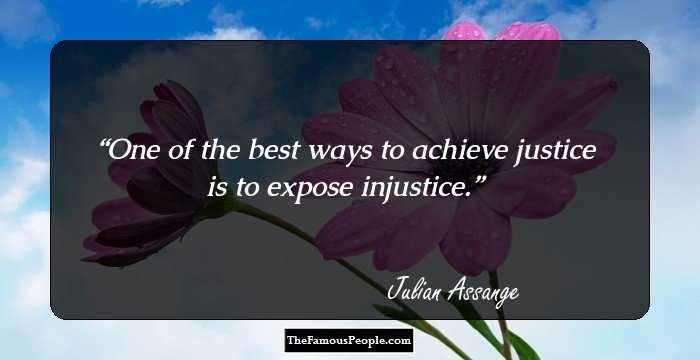
One of the best ways to achieve justice is to expose injustice.
When it comes to the point where you occasionally look forward to being in prison on the basis that you might be able to spend a day reading a book, the realization dawns that perhaps the situation has become a little more stressful than you would like.
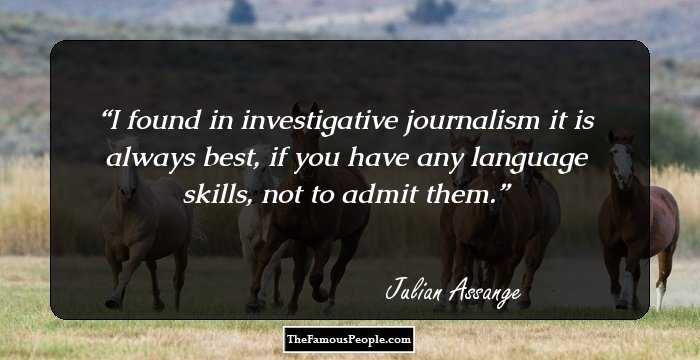
I found in investigative journalism it is always best, if you have any language skills, not to admit them.
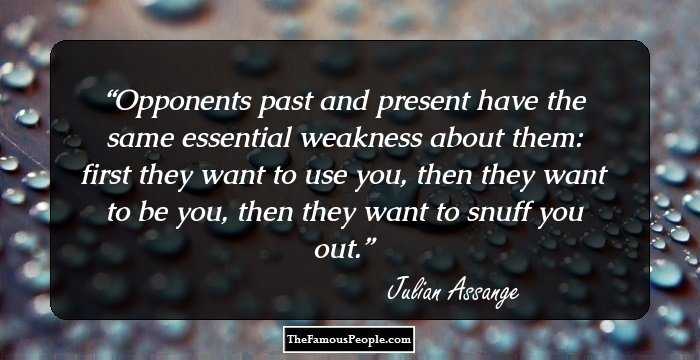
Opponents past and present have the same essential weakness about them: first they want to use you, then they want to be you, then they want to snuff you out.
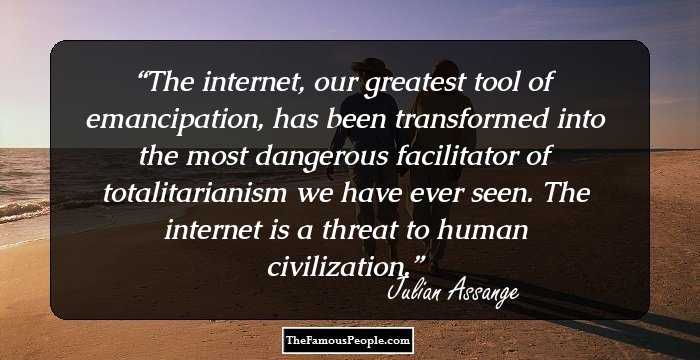
The internet, our greatest tool of emancipation, has been transformed into the most dangerous facilitator of totalitarianism we have ever seen. The internet is a threat to human civilization.
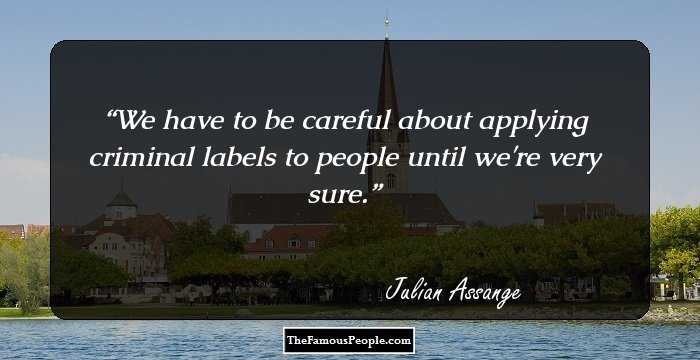
We have to be careful about applying criminal labels to people until we're very sure.
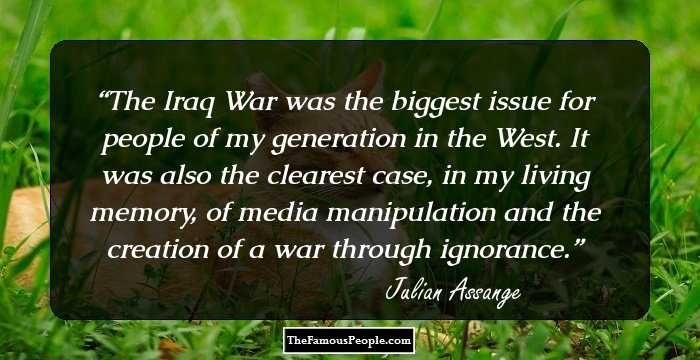
The Iraq War was the biggest issue for people of my generation in the West. It was also the clearest case, in my living memory, of media manipulation and the creation of a war through ignorance.
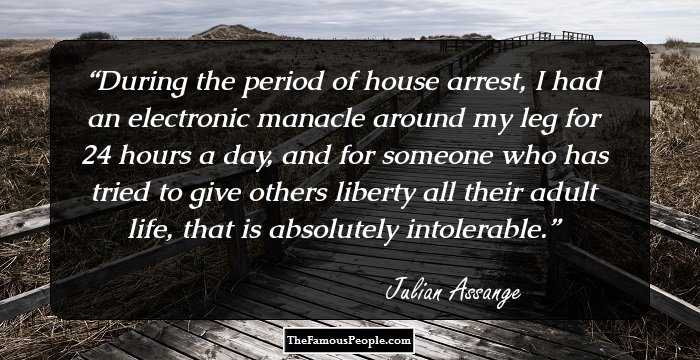
During the period of house arrest, I had an electronic manacle around my leg for 24 hours a day, and for someone who has tried to give others liberty all their adult life, that is absolutely intolerable.
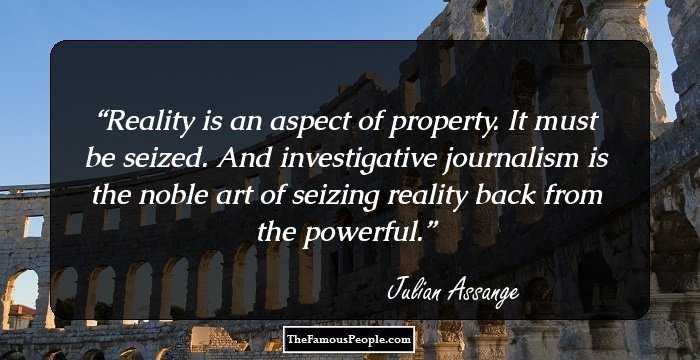
Reality is an aspect of property. It must be seized. And investigative journalism is the noble art of seizing reality back from the powerful.

